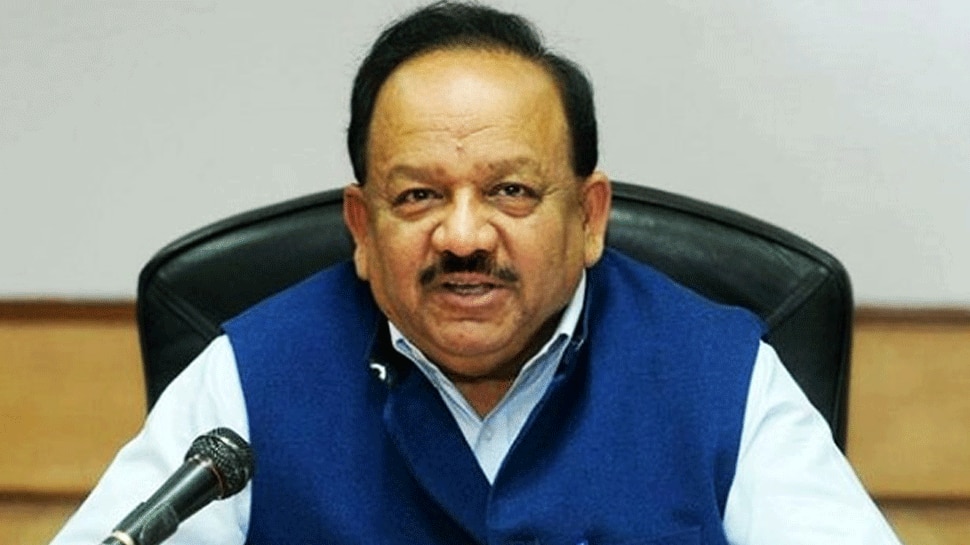India undertook COVID-19 challenge with highest level of political commitment: Dr Harsha Vardhan
Union Health Minister Dr Harsha Vardhan on Friday said India undertook the COVID-19 challenge with the highest level of political commitment with Prime Minister Narendra Modi personally monitoring the situation and ensuring a pre-emptive, pro-active and graded response.

New Delhi: Union Health Minister Dr Harsha Vardhan on Friday said India undertook the COVID-19 challenge with the highest level of political commitment with Prime Minister Narendra Modi personally monitoring the situation and ensuring a pre-emptive, pro-active and graded response.
Speaking at the Shanghai Cooperation Organisation (SCO) Health Ministers' meeting, Dr Harsha Vardhan expressed his deepest condolences at the loss of lives across the world due to COVID 19. He also expressed his "sincere gratitude" for the efforts of those who are in the frontline of this battle.
"The world is faced with an unprecedented disaster, which has so far affected of the entire planet leading to close to 15 million cases and 0.6 million deaths globally," said the Minister.
"We, in India, undertook the COVID 19 challenge with the highest level of political commitment. Prime Minister Narendra Modi, personally monitored the situation and ensured a pre-emptive, pro-active and graded response. leaving no stones unturned to contain the deadly virus from spreading," he said.
The Minister noted that India has so far reported 1.25 million cases and more than 30,000 deaths due to COVID-19 and said India has one of the lowest cases and deaths per million population, which is 864 cases per million and less than 21 deaths per million of our population.
Also Read |
'India ready to help friends': PM Modi on exporting Hydroxychloroquine amid COVID-19 crisis
"Our recovery rate stands at 63.45 per cent whereas our mortality is among the lowest in the world at 2.3 per cent," he said.
The minister stressed that India started its preparedness measures much before the outbreak was even declared a Public Health Emergency of International Concern by the World Health Organization.
"In an attempt to decelerate the transmission of the disease, India took some very bold steps like implementing a nationwide lockdown in the very initial stages. Three consecutive lockdowns provided India with much required time and opportunity to build up on technical knowhow, laboratory capacities, hospital infrastructure and also to build up its pharmaceutical and non-pharmaceutical interventions," he said.
Highlighting that the disease surveillance programme in the country has enrolled 3.2 million persons for community-based follow-up, the minister said: "The laboratory network has been scaled up to nearly 1,300 laboratories capable of testing RT-PCR. We have performed more than 15 million RT-PCR tests so far and are now performing more than 0.35 million tests per day, with a projected quantum of performing 1 million tests every day."
"The TruNat and CBNAAT machines have been repurposed for testing COVID-19. Additionally, point of care antigen-based testing has been introduced in a major way in containment zones," he said.
Also Read |
PM Modi urges CMs of six states with high COVID positivity rate to strengthen health infra
The minister asserted that local technology has been harnessed to set up temporary hospitals for housing up to 10,000 patients in a single establishment. Today, we have over 15,000 COVID-19 treatment facilities with a total isolation bed capacity of 1.4 million, he said.
He further pointed out that in terms of logistics, India did not have a single manufacturer of Personal Protective Equipment (PPE) and now the "country has developed indigenous capacity in the past few months to the extent that the country can export quality PPEs."(ANI)
 Dynamite News
Dynamite News 